Initial Impressions: Buff and Shine Uro-Wool Pad
by Zach McGovernPaint correction is my favorite part of the detailing process. To me, there just simply isn’t anything as rewarding as taking some tired, beaten up paint and making it look new again. A huge part of the end result is a factor of what you are able to achieve in the cutting process. Over the years I have become strongly attached to microfiber cutting pads, and for some reason entirely overlooked wool pads. When the Buff and Shine Uro-Wool pad arrived at my house, I was very eager to see what it could do.
The Buff and Shine Uro-Wool pad is the first wool product in the “Uro” lineup and is specifically designed for jobs where heavier cutting is required. These pads are not your grandpas wool pads. Unlike traditional twisted wool pads that have been around forever, the Uro-Wool pad incorporates processed wool that is knitted onto the pad instead of twisted. In theory, this means fewer wool fibers flying off of the pad and floating around the shop. The face of the pad is very thick and soft. It is made up of hundreds of individual fibers per square inch. My first impression upon seeing and feeling this pad was that it felt just like a new wool wash mitt, though I have since learned that these two types of wool are actually quite different. Lambswool, which is used in wash mitts, is generally a much less consistent surface, while the knitted wool used in the Uro-Wool pads was designed with precision in mind.
Unlike a microfiber pad which has a foam interface between the backing and the face of the pad, the Uro-Wool pad has virtually no interface separating the wool fibers from the backing. This results in a more efficient transfer of motion from the machine to the pad face which results in quicker leveling. Buff and Shine says that despite the awesome cutting power, the Uro-Wool pads will not create heavy swirls. The pad should allow for great cutting and still produce an acceptable finish that is easy to refine with a single polishing process. The Uro-Wool pad is available in 6″, 5″ and 3″ diameters and can be used on both rotary and dual action polishers.
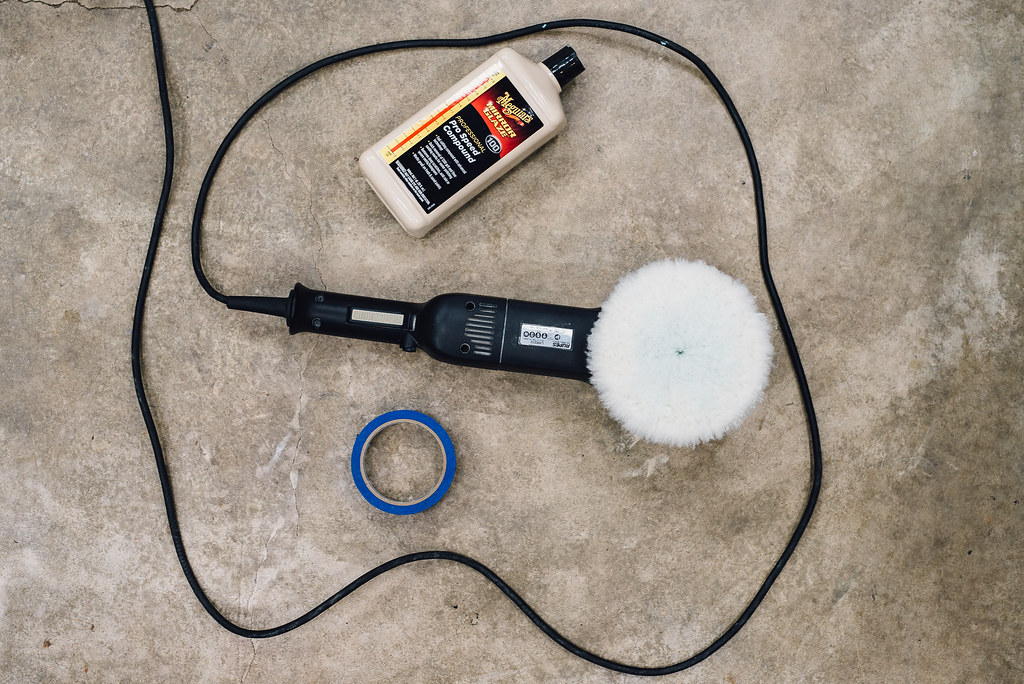
Before I put the pad to use on my Rupes LHR21ES Mark II, I primed the face and worked the product into the fibers. I then applied 3-4 dots of M100 and spread it onto the area I would be working on.
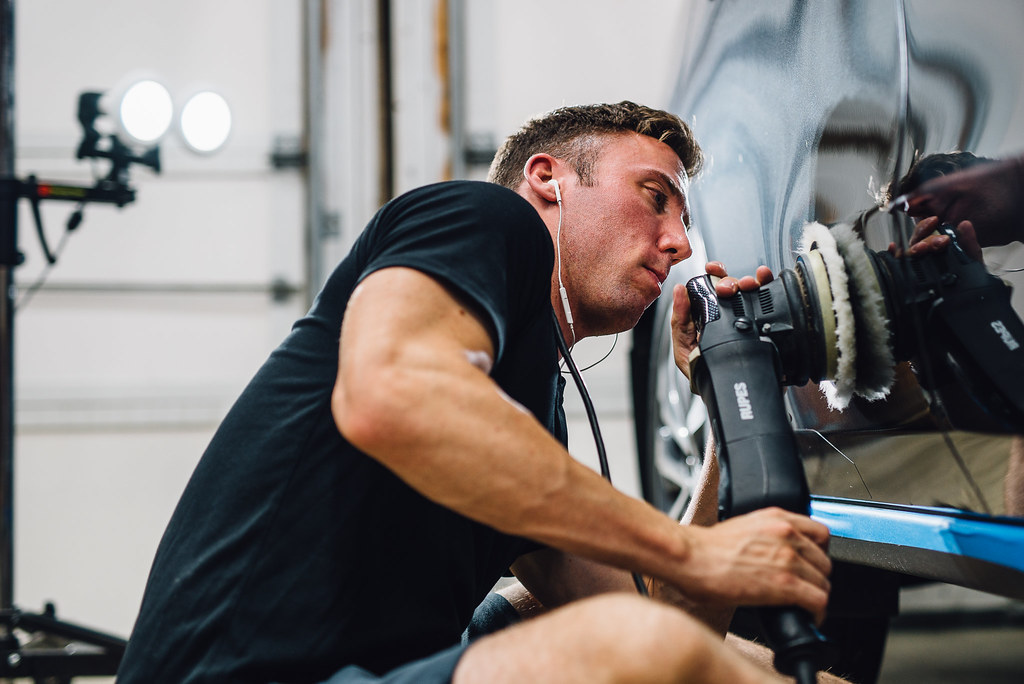
I had done some testing on this exact panel with some microfiber cutting pads and the same compound in the past, so I knew what I was up against. In my previous tests, I had struggled to completely remove the defects on this lower section of these doors as the vehicle had spent years going through automated car washes which really took a toll on these areas.
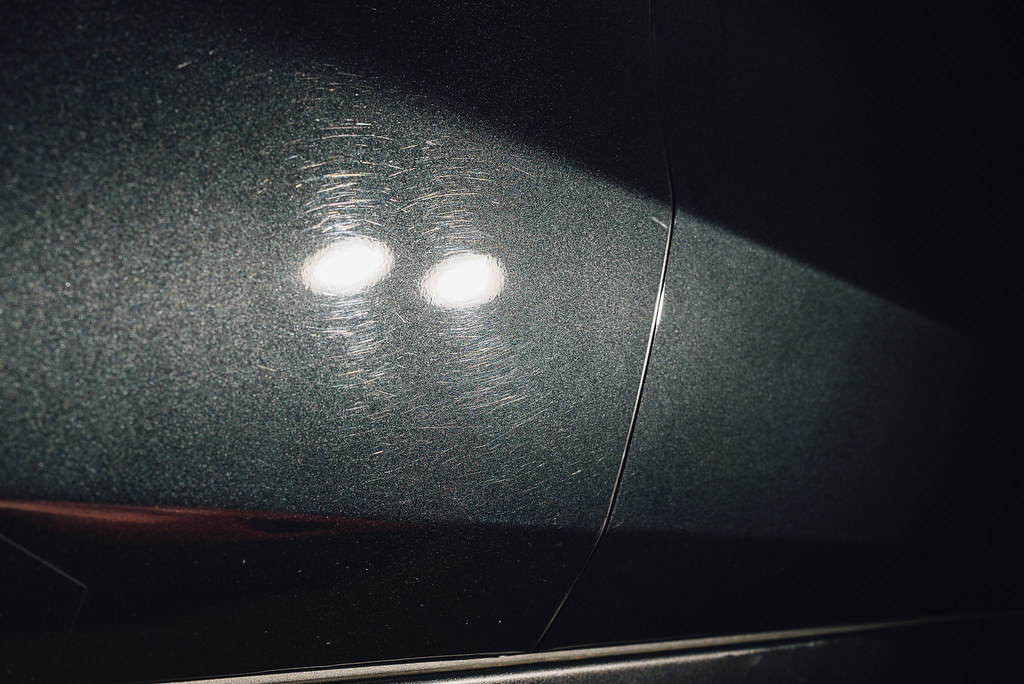
After just 3 passes at a machine speed of 4 or 4.5, I was incredibly relieved to see that the defects had been obliterated by this compound and pad combination. There were a few remnants of some of the deeper scratches, and I felt confident that I could have removed them with another pass or two, however, the paint in this area was relatively thin so I felt no reason to be any more invasive. I was very pleased with these results. I achieved a greater level of cut in far fewer passes compared to the previous tests I had done with other microfiber pads. I did have a few loose fibers come off of the pad while I was working on my initial section with a new pad, but did not experience any fiber loss on subsequent sections. Also, the pad was very easy to clean after each section using compressed air or a brush.
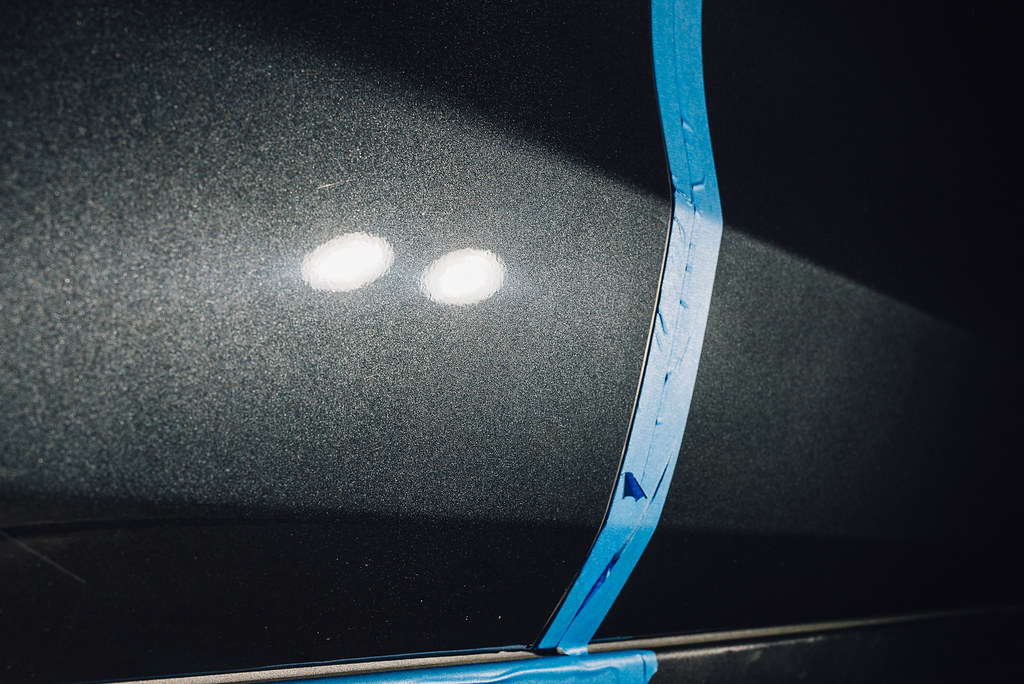
In the previous photo, a very slight haze can be detected, which is certainly expected with heavy cutting. A slightly different lighting angle shows how minor the marring was in this case. The finish was exceptionally clear given the amount of correction that was achieved. It far surpassed my expectations. It is worth noting that this paint is quite hard, therefore softer, more delicate paint may show considerably more marring from this amount of cutting.
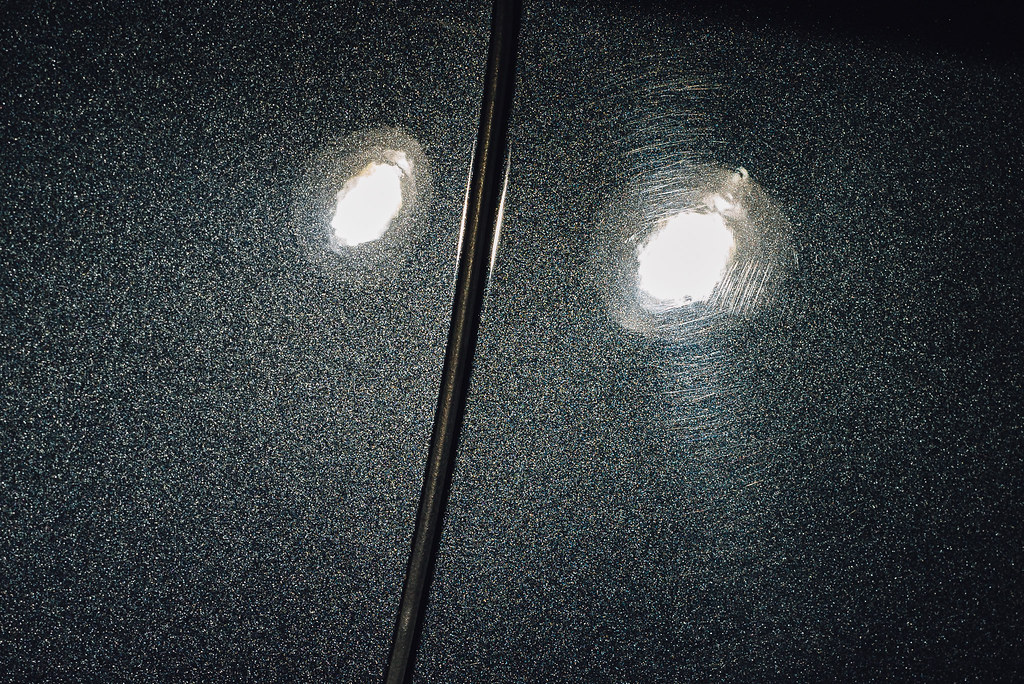
My initial thoughts after spending a little bit of time with this pad can be summarized to this simple question: why did I wait so long to try wool pads?!?! Thinking back to the many times when I have had to go over a panel two or three times with microfiber pads to accomplish the desired defect removal, I feel I could have avoided a lot of that extra work if I had been using wool pads such as the Buff and Shine Uro-Wool. Hopefully, my experiences may convince others to pick up a wool pad, or two, and see if they are a good fit for your paint correction needs.










Did you apply any pressure with the wool pad?
Hi Josh – a “normal” amount of pressure was used. I tend to use just a light to moderate amount of pressure when using my long-throw DA polishers in most instanes.
I’m in total agreement. I always thought wool was old skool and was only for rotaries. I found microfiber pads and thought nothing could be better (still not sure wool is “better”). Every detailer needs different pads, compounds, and polishes in their arsenal to create the best and easiest finish possible. The new Rupes Mille is what “woke” me up to wool. I’m not throwing away my microfiber pads, but wool is now a new option I have for major defect removal. Thanks Zach.
Thanks for the feedback!! My microfiber pads certainly aren’t going anywhere either, but I love having the option to grab wool now when I feel it is better suited for the task at hand.
I bought one of the Uro-Wool pads recently. I haven’t gotten a chance to use it yet. This article really has me looking forward to getting it out.
I’ve got a Rupes 15 MKII and a rotary. Have you tried the Uro-Wool on a rotary.
Also, can the Uro Wool be hand washed? Or only brushed/spurred clean?
Looking forward to hearing your thoughts, Bob.
I have not used it on a rotary.
Buff and Shine says: “To clean Uro-Wool™ pads, use compressed air or an appropriate pad brush. You can also use a mechanical pad washer or wash them by hand.”
Thanks Zach.
I’ll post back here with my opinion on B&S uro-wool. I have yet to be disappointed with a Buff and Shine pad.
How many wool pads to do a Toyota Highlander, would you recommend please.
How does this compare to the uro fiber 50/50 pads?